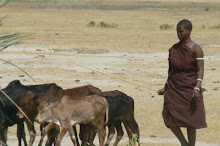More than half of infected monkeys given vaccine showed 'no signs' of virus in tests
Human trials is next step for vaccine development
An experimental drug helped monkeys with a form of the Aids virus control the infection for more than a year, suggesting it may lead to a vaccine for people, or even a cure.
Researchers said Cytomegalovirus (CMV) works by priming the immune system to quickly attack the HIV virus when it first enters the body, a point at which the virus is most vulnerable.
Dr Louis Picker of the Oregon National Primate Research Centre, whose study appears in the journal Nature, said he thinks it will be possible to have a vaccine ready to test in people within three years
Unvaccinated monkeys infected with SIV went on to develop the monkey equivalent of Aids, caused by the collapse of their immune systems.
The findings suggest the vaccine could be effective enough to rid the body of immunodeficiency virus completely, according to the scientists writing in the journal Nature.
Conventional antiretroviral therapies are able to control HIV infection, but cannot clear the virus from its hiding places within the immune system's white blood cells
Dr Picker said: 'The next step in vaccine development is to test the vaccine candidate in clinical trials in humans.
'For a human vaccine, the CMV vector would be weakened sufficiently so that it does not cause illness, but will still protect against HIV.'
CMV belongs to the herpes family of viruses, and like other members of the group never leaves the body once an infection has occurred.
An estimated half of all adults in the UK carry CMV but suffer no or few symptoms. The virus is spread through bodily fluids such as saliva and urine.
When symptoms do occur, they are similar to those of flu including a high temperature and swollen glands and tiredness. People with weakened immune systems can have a more severe response
An experimental drug helped monkeys with a form of the Aids virus control the infection for more than a year, suggesting it may lead to a vaccine for people, or even a cure.
Researchers said Cytomegalovirus (CMV) works by priming the immune system to quickly attack the HIV virus when it first enters the body, a point at which the virus is most vulnerable.
Dr Louis Picker of the Oregon National Primate Research Centre, whose study appears in the journal Nature, said he thinks it will be possible to have a vaccine ready to test in people within three years.
CMV enables the immune system to be constantly on the alert for HIV.
Researchers used different versions of the vaccine against a monkey form of the Aids virus, SIV (Simian Immunodeficiency Virus) with outstanding results.
More than half the rhesus macaques treated responded to the point where even the most sensitive tests detected no signs of SIV.
To date, most of the animals have maintained control over the virus for more than a year, gradually showing no indication that they had ever been infected.
‘What’s exciting about these findings is that for the first time a vaccine candidate has been able to fully control the virus in some animals,’ said Dr Wayne Koff, chief scientific officer at the International AIDS Vaccine Initiative (IAVI), which helped fund the research.
Koff said the findings also suggested the possibility that the immune system may eventually eliminate the virus altogether.
‘This research gives us potential clues as to how we might design an HIV vaccine for humans that would provide the same type of control,’ he said.
Darasa 45: Maisha yetu kama zoezi la matofali
-
Darasa linakukumbusha kuwa...… Watu watatu ni mimi na wewe. Watu kumi ni
mimi na wewekwa sababu kuna watu tumesimama nyuma yao. Lakini pia, ni watu
wetu ...
2 years ago


















.png)






No comments:
Post a Comment